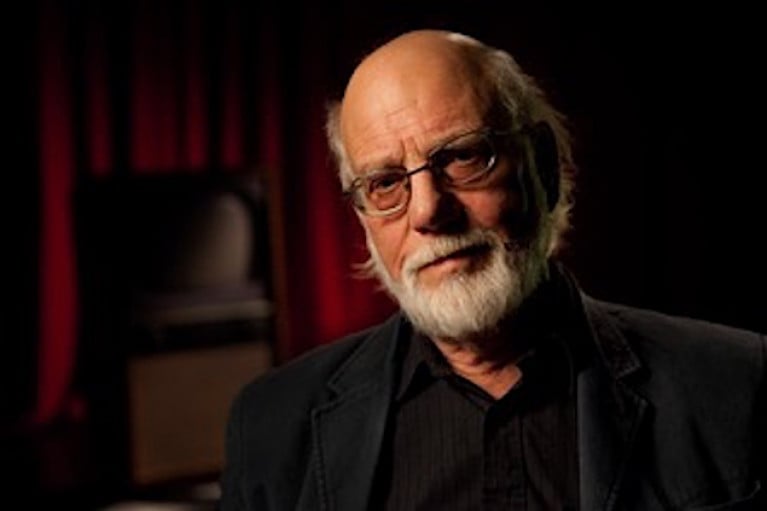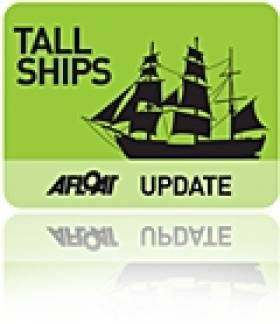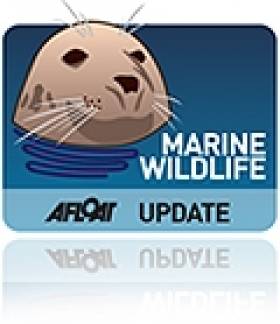Displaying items by tag: filmmaking
Film Maker Bob Quinn & the 'Atlantean' Docu, Part of Galway Film Fleadh’s Solstice Festival
Atlantean conjures up images of sea serpents, mythical peoples living under the sea and it is also the title of a fascinating project which Aosdána member and filmmaker Bob Quinn embarked on in the early 1980s.
The outcome was three documentaries, entitled Atlantean, which are now being screened as part of Galway Film Fleadh’s Solstice festival until January 21st.
Quinn also wrote a book entitled The Atlantean Irish published in 2005 by Lilliput Press which dismissed as myth the popular belief in “Celtic” origins.
He proposed instead that we are part of a common “Atlantean” culture extending from the western seaboard of Europe and North Africa and further east.
At the time, his theories were dismissed by academics, but the impact of global warming and climate breakdown on enforced migration and conflict now lends further weight to his research.
The filmmaker, photographer and author is due to be conferred with an honorary degree by NUI Galway in 2021 for his contribution to the artistic and cultural life of Galway and the Conamara Gaeltacht.
 Kinvara - Bob Quinn explores maritime links between Ireland and North Africa in the Atlantean project
Kinvara - Bob Quinn explores maritime links between Ireland and North Africa in the Atlantean project
He has recently published a work of fiction which explores climate breakdown through the eyes of sailor Flannery, on the river Shannon.
Darwin on the Shannon is set in 2030 when the Arctic ice has finally melted and a tsunami is anticipated.
Writer Christine Dwyer Hickey has described Quinn as “a writer who understands nature in all her beauty and savagery” and describes the book as a “ touching and compelling tale of survival”.
 Film maker Bob Quinn who made three documentaries and wrote a book on the Atlantean project. The films are being shown as part of Galway Film Fleadh's online Solstice festival until January 21st
Film maker Bob Quinn who made three documentaries and wrote a book on the Atlantean project. The films are being shown as part of Galway Film Fleadh's online Solstice festival until January 21st
The Galway Film Fleadh, which he is a founder of, is running the online Solstice event to celebrate Ireland’s first wave of cinema from the late 1970s to the millennium.
Other films available to rent until January 21st include Quinn’s Poitin, Pat Murphy’s early Irish feminist masterwork Anne Devlin, Joe Comerford’s Reefer and the Model, Margo Harkin’s Hush-a-Bye Baby, Cathal Black’s Korea and Lelia Doolan’s documentary on Bernadette Devlin, Bernadette: Notes on a Political Journey.
Full details on Solstice are here
Darwin and the Shannon is available in Charlie Byrne’s bookshop, Galway, and An Ceardlann in An Spidéal, and online here
Bob Quinn spoke to Wavelengths about Atlantean, recalling how it all started...
A Weekend to Explore the 'Bounty'
The Cork-berthed replica HMS Bounty, the purpose built movie prop tallship used in the 1962 MGM studies film release of 'Mutiny and the Bounty' starring Marlon Brando, will be open to visitors from tomorrow, writes Jehan Ashmore.
The famous tall ship is to open to the public between (11am-6pm) and these times also apply to the Saturday and Sunday. Tours on board the Bounty are self-guided with crew assistance. Admission charges are €10 for adults and children €5, children under four years go free.
The Bounty is berthed at Albert Quay which faces opposite the Cork City Marina on the south quays of the city-centre.
The public can explore her "tween" deck 8' foot ceilings, this made it easier for the film crew and their equipment to access.
As a result, Bounty has been hired by filmcrews for the making of 'Treasure Island', 'Yellowbeard', 'Sponge Bob, Square Pants, the Movie' and 'Pirates of the Caribbean - Dead Man's Chest'. In addition to commercial movies, Bounty has also been the stage for many documentaries.
To compare the differences between the replica and the original 18th century built 'Bounty' click HERE.
Monty Halls Gives Talk on 'Capturing Giants'
Renowned diver Monty Halls is set to present a public talk on his marine animal work filming whales, sharks and dolphins around the world tomorrow night (7 October).
Halls, who has been in Ireland since April making his latest documentary series for the BBC, has been assisting the Irish Whale and Dolphin group (IWDG) with its research on whales, dolphins and basking sharks in Irish waters.
The diver, filmmaker and former Royal Marine, who is also a popular motivational speaker and performance coach, will talk on his experiences filming and diving with marine mammals around the world, and will surely provide some great entertainment.
The talk, part of the Tales of the Whales Lecture Series organised by the IWDG and the Galway-Mayo Institute of Technology (GMIT), begins at 8pm on Thursday 7 October in Lecture Room 1000 at GMIT, Dublin Road, Galway. The event is free and all are welcome to attend.
Welcome to Afloat TV

Since 2003 the team behind Afloat magazine has also been producing high-end, internationally appealing and entertaining factual documentaries on the Irish waterways. The production team are a mix of creative, technical and business people whose expertise guarantees an innovative approach to production and a high-quality finished product. The focus is on marine based programmes which entertain and educate. The work has been broadcast on RTE One and internationally on Sky Channels.
The Bay
Screened on RTE One in 2005.
Take a trip around the one half of Ireland's capital city you probably know the least. A new four-part documentary series, The Bay will be screened over four consecutive Wednesdays in May. Using spectacular aerial and underwater footage, the series features a combination of personality-led interviews and themes to tell the story of Dublin's unique waterway. Dublin Bay stretches over six kilometres, from Howth Head on its northern tip to Dalkey Island in the south. It's a place most Dubliners simply take for granted, and one of the capital's least visited places. But there's more going on out there than you'd imagine. And that's why The Bay was made. The series introduces viewers to the rich diversity of activities and personalities around the bay, while also touching on the serious environmental and political issues facing it. Find out more about the bay here.
The Harbour
Screened on RTE One in 2007.
It’s one of the largest natural harbours in the world – and those living near Cork Harbour insist that it’s also one of the most interesting. This was the last port of call for the most famous liner in history, the Titanic, but it has been transformed into a centre for chemical and pharmaceutical industry. Giraffe wander along its shores, from which tens of thousands of men and women left Ireland, most of them never to return. The harbour is home to the oldest yacht club in the world, and to the Irish Navy. This deep waterway has also become a vital cog in the Irish economy. ‘The Harbour’ is not a history programme, nor is it a news focus. It’s simply an exploration of this famous waterway, its colour and its characters. Find out more about the harbour here.
The Estuary
Screened on RTE One in 2007.
The story of the Shannon estuary might well be one of neglect, except that against the odds this waterway has become one of Ireland's greatest natural resources. Windswept, sitting on the edge of the Atlantic, often ignored by the nation. The story of the Shannon estuary might well be one of neglect, except that against the odds this waterway has become one of Ireland's greatest natural resources. A new four-part documentary series, from the makers of RTÉ's The Bay and The Harbour series, uncovers the secrets of the Shannon Estuary. From flying boats to film-making, wildlife to wind-farms, the series reveals how a 100km-stretch of the Shannon waterway has become a hotbed for innovation in Ireland. Up to 40% of Irish energy needs are met here, on the shores of a waterway that is also home to Ireland's second largest airport, a 10,000 student university and a massive cargo port. Ireland - and the world - has learned from the estuary. The first duty free shop was opened here, along with the first industrial free zone. Over the years, thousands of business and political leaders from across the globe have come to Shannon to discover its secret - in the hope that they might copy it. Long before Ireland heard of green energy, this place was producing it. Listen in to dolphin conversations beneath the Shannon's waterline. Uncover the mystery of the Ark, the church on wheels built by a priest who prayed when the tide went out. Narrated by Brenda Fricker, the series aired on Friday nights at 7.30pm on RTÉ One from May 4th 2007. Find out more about the estuary here.
The Navy
Screened on RTE One in 2007.
60 years of the Irish Naval Service. Celebrating the 60th anniversary of the Irish Naval Service, this 3 x half-long feature documentary shows how the Service has evolved into a multi-tasking, multi-disciplinary force. Most Irish people rarely come into contact with the Naval Service, and so are unaware of the range of activities it undertakes. This documentary provides an ideal opportunity to reveal the full extent of the Service’s duties – and the commitment of those who serve on Ireland’s fleet.
The Regattas
Screened on RTE One, 2007 and Sky Sports in 2009.
Sailing featured in RTE’s Christmas schedules this year, with the broadcast of a half-hour documentary feature on the Volvo Dun Laoghaire Regatta 2007. The production, entitled ‘The Regatta’, was shot over four days in Dublin Bay during this year’s regatta. Made by Baily Films, the company behind earlier critically-acclaimed water-based documentaries The Bay, The Harbour, The Estuary and The Navy, it features spectacular on-board footage from a range of craft competing in the event. The Regatta takes viewers both on board the competing craft, and behind the scenes, to examine the challenges thrown up by organising such a large-scale event on the bay. The Regatta was broadcast on RTE 1 on Saturday, December 22, at 4.20pm.
IN DEVELOPMENT
Afloat TV projects at an advanced stage of development include:
The Edge of Ireland
Ireland’s attitude to the seas that surround her is one of the most curious in the world. An island nation, with more coastline than most other European nations, most of her citizens look inland.
Yet no-one in Ireland lives further than 100 kilometres from the sea, and the majority of the population are housed within 10 kilometres of the coast.
More than any other European nation, our history is written on our shores. The very first settlers clung to it, fearing to explore inland. The shores fed and sustained them, and continued to sustain communities from Malin Head to Mizen Head for the next 9,000 years.
From the fort of Dun Aengus to the fields at Carnsore Point, from Inishvickillane to Bull Island, the coastline holds a key to our understanding of Ireland and ourselves.
The Edge of Ireland will uncover that hidden history of Ireland, and explore what the future holds for our coastline. Travelling around the coast, it will use local and national experts to relate individual accounts of how the sea has connected with the land to shape a local community or the nation at large.
The six half-hour series will be presented thematically, rather than using a linear journey up and down the coastline.
CONTACT
If you're keen on promoting Ireland's waterways and would like to get involved with Afloat TV please email us here.
































































